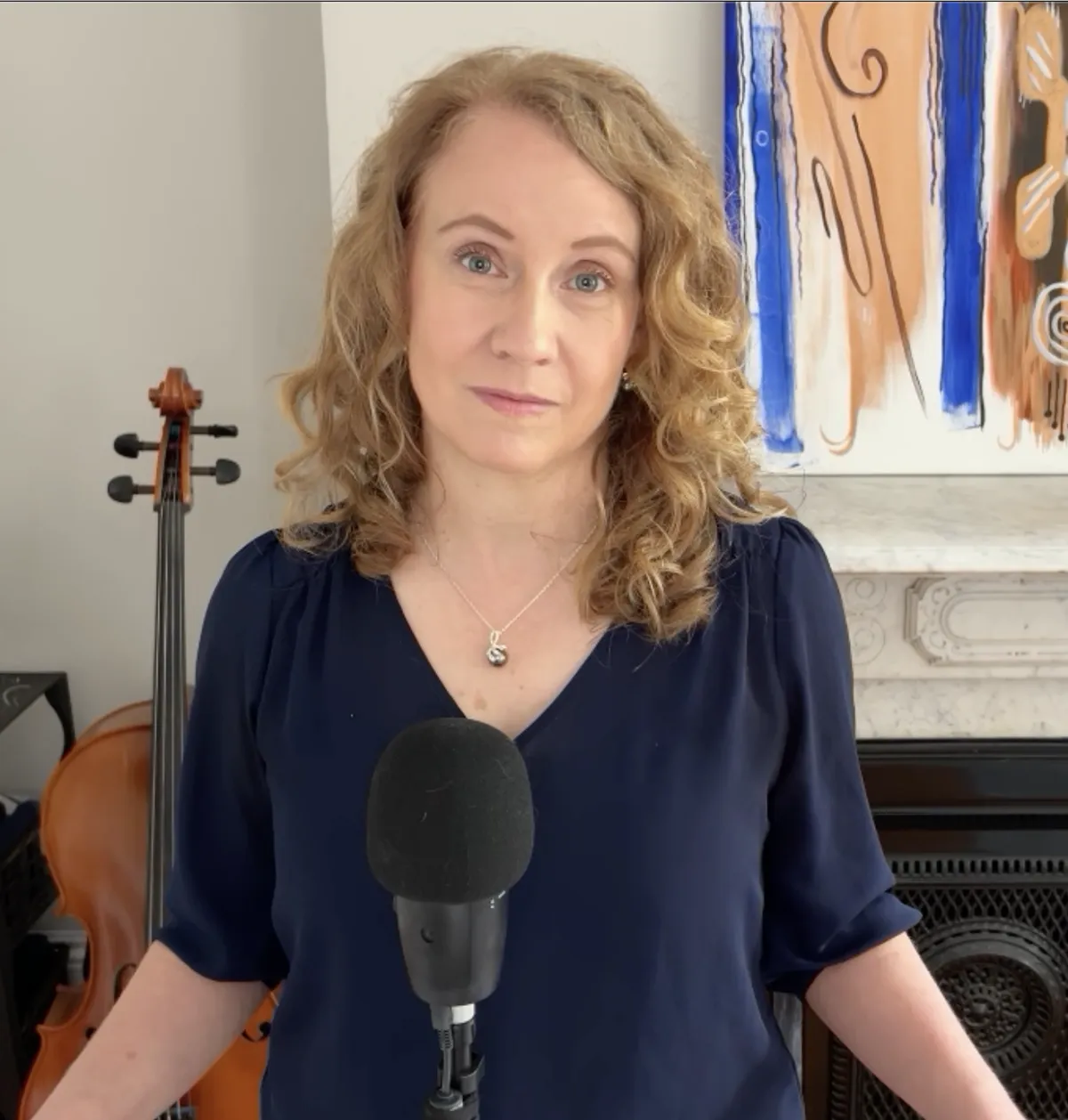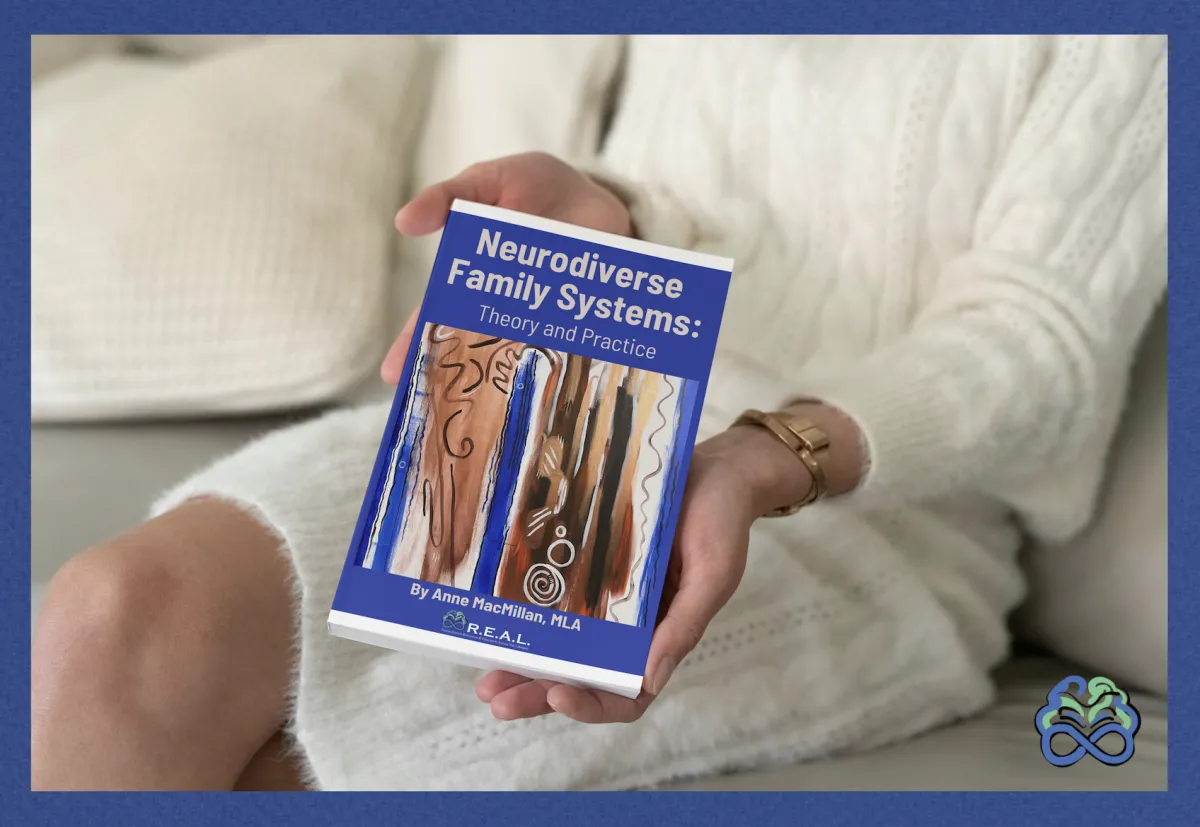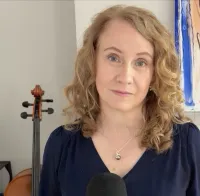
MacMillan's 10-Step Neurodiverse Family Systems Approach:
A Comprehensive Framework
to support neurodivergents and their families throughout adulthood.

Anne MacMillan, MLA
Founder of the 10-Step Neurodiverse Family Systems Approach, Speaker, Researcher, Consultant, Coach, Educator and Expert Witness
About Anne MacMillan
I built my original Neurodiverse Family Systems Theory on my education, personal life experience, and the professional experience I gained in the private neurodiverse services practice I founded in 2017.
Today, my services extend to support other professionals who have come to the new realization that neurodiversity is at the heart of many of the relationship challenges their adult clients face. Professionals can earn my Neurodiverse Family Systems Educator Credential (NFS-E) then use my practical 10-Step educational system, including quantitative assessments and support resources, to help their clients comprehend their relationship challenges and find the happiness and peace they deserve.
I have a research-based master's in psychology from Harvard University and studied developmental psychology as an undergrad. I received the Director's Thesis Award at Harvard for my original research on Level 1 autism and intimate life partnerships -- some of the first quantitative research on the subject in the world.
Altogether, I have over 50 years of personal life experience with neurodiverse family systems, over 20 years of personal life experience with neurodiverse intimate life partnerships, and 8 years of professional experience working with individuals managing the challenges of neurodiverse family systems.
I self-identify as a high body empathetic neurodivergent who just might also be a bit attention neurodivergent (ADHD). I am not autistic.
Our Services
Level 1 autism has a significant impact on dating, marriage, parenting, separation and divorce. Yet many individuals in neurodiverse intimate life partnerships (or life partnerships between autistics and non-autistics) had no idea that one partner was on the spectrum before tying the knot. Professionals, confused by the autism and Neurodiverse Relationship Dynamics (NRD), have offered misdiagnoses and poor advice, adding to the burden Level 1 autistics and their family members have faced.
Likewise, Level 1 autistic adults have little career support, facing the work world with little to no recognition that their autism affects their professional relationships.
R.E.A.L. Neurodiverse seeks to provide services that support these unmet needs.
MacMillan's Neurodiverse Family Systems Theory
Autistics and non-autistics perceive and navigate the social world differently. These differences create a phenomenon I term 'Neurodiverse Relationship Dynamics' (NRD).
Due to differences in neurological functioning, and at no fault of any family member, NRD contribute to perpetual cycles punctuated by emotional explosions called 'intermittent trauma spikes.'
Autistics and non-autistics also experience empathy differently, with autistics experiencing what emotion-sharing empathy' and non-autistics experiencing 'body empathy.' Empathy differences as well as different levels of 'empathic-emotion intensity' and 'emotion-origin awareness' can contribute to the trauma experienced during intermittent trauma spikes.
Both non-autistics and autistics can engage in harmful narcissistic behaviors within neurodiverse family systems. Increasing awareness of NRD can support all family members in reducing the level of narcissistic behaviors and in responding to them appropriately.
Neurodiverse families are commonly made up of three primary types of neurodivergents: autistics, attention neurodivergents (ADHD), and high body empathetics. And, of course, sometimes other neurodivergents and true neurotypicals crop up in neurodiverse famlies as well. All members of neurodiverse families need and deserve support regardless of neurology.
The tendency for individuals to select intimate life partners that are familiar to them alongside the fact that neurodiversity has a genetic component means that individuals from neurodiverse families commonly have children with other individuals from neurodiverse families, passing neurodiversity from generation to generation and creating the phenomenon of neurotribes.
Individuals in neurodiverse families commonly take upon themselves particular roles associated with both individual and systemic functions within their neurodiverse family systems. These roles are facilitated by the different neurologies and are more intractable than roles in neurotypical families. Gaining awareness of the roles and their functions can support individuals in neurodiverse family systems as they make sense of the relationship confusion they are experiencing and then make decisions and take actions to improve their lives.
Most professional services are designed with neurotypicals from neurotypical families in mind, abandoning neurodivergents from neurodiverse families to inadequate supports that tend to be irrelevant to their actual family experience and the relationship challenges they face in their daily lives.
I believe the first step to overcoming all this confusion is to have a foundational understanding of empathy differences, Neurodiverse Relationship Dynamics (NRD), and the manner in which trauma and multigenerational behavioral patterns (facilitated by neurodiversity) affect neurodivergents within neurodiverse family systems.
My original Neurodiverse Family Systems Theory and my 10-Step Neurodiverse Family Systems Approach seek to fill this gap and to provide professionals and members of neurodiverse families the information they need so all individuals from neurodiverse families can find the happiness and peace they deserve.

Anne MacMillan, MLA
Founder of the R.E.A.L. 10-Step Neurodiverse Family Systems Approach, Speaker, Researcher, Consultant, Coach, Educator and Expert Witness

MacMillan's 10-Step
Neurodiverse Family Systems Approach

It Takes Two to Tango
“The moral of the adage should be the opposite. In actuality, it takes two to get along.”
What happens when you're not safe to walk away from a fight?
"It takes two to tango" is an old adage often interpreted to mean that fights only happen because both people are participating.
Its moral is: if you’re part of a fight, it’s your fault, too. You wouldn’t be in the fight if you weren’t choosing to be in it. And, if you want to stop a fight that you’re part of, stop your half of the fight and the fight will end.
And, that’s true if you have the power to walk away from a fight. An adult can choose to leave any fight that it’s safe to leave. And by leaving you win…..
But what happens when you’re not safe to walk away from a fight? What if you can’t get away from the other person? What if there are other people, possibly small children, depending on you to stay in the fight?
If you can’t walk away, is healthy to always allow yourself to lose just to keep the peace? Is it better to start fighting back?
The moral of the adage should be the opposite. In actuality, it takes two to get along. It takes two to work together. It takes two to be a team. It takes two to collaborate.
Neurodiverse relationships are rife with fighting and low on teamwork and collaboration. Teamwork and collaboration are easier when both people have theory of mind skills. When each partner can somewhat accurately perceive the other persons’ perspective and intentions, they can more easily find ways to work together for the mutual benefit of both.
When only one of the two people in a relationship has theory of mind skills, that person, the neurotypical partner, is working to be aware of the other partner’s, the ASD partner’s, intentions and perceptions. Yet at the same time, the partner with ASD isn’t keeping in mind the neurotypical partners’ intentions and perceptions. The result is that both partners are thinking about the ASD partners’ intentions and needs and only the neurotypical partner is thinking about the neurotypical partner’s needs.
Things can get out of balance after a while, favoring the partner with ASD’s needs. And people with ASD do, at no fault of their own, have a lot of needs.
In marriage, ASD partners’ needs do not negate the needs of neurotypical partners who, over time, become worn due to the lack of reciprocity in communication, caregiving and connected sexuality and affection.
A marriage is different than a parent-child relationship, a therapist-client relationship, or a teacher-student relationship. Ideally, it is a relationship of equality in which both partners are working together or caring for each other. But in mixed-neurological marriages, due to the difference in theory of mind skills between the partners, this kind of reciprocity and teamwork doesn’t happen.
It does take two to tango. Watch the dance. It is a neurotypical dance with both partners responding to the other. It is about connection, eye contact, sexuality, and working together for the benefit of both. The tango is a dance of social communication and autism affects social communication. The tango can’t happen in neurodiverse marriages because only one partner’s brain knows how to do the dance.
It takes two to tango.
It takes two to work together.
It only takes one to perpetuate a fight and it’s not always possible for the other spouse to walk away

Pre-Order Your
Copy Today
Neurodiverse Family Systems: Theory and Practice
By Anne MacMillan, MLA
© 2024 R.E.A.L. Neurodiverse
All Rights Reserved
anne@REALneurodiverse.com
Text or Call: (617) 996-7239 (United States)
